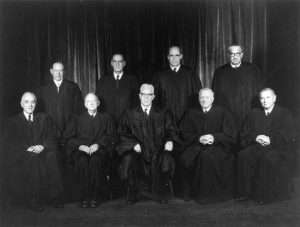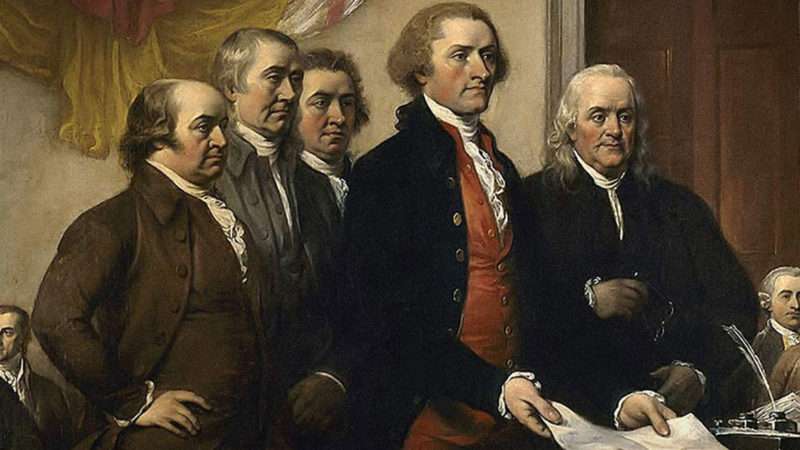Before you lash out at me for picking on the California GOP, please keep in mind that most of my writing over the past 22 years has chronicled the myriad ways that the state’s union-controlled Democratic Party has destroyed the California Dream. We desperately need a healthy Republican Party to provide political competition.
Thanks to one-party control, California has the highest poverty rates in the nation, crummy schools, crumbling infrastructure, absurdly high housing prices, and high taxes and punitive regulations that send our residents fleeing to other states. These crises are the result of policy choices, not happenstance.
Despite Joe Biden’s overwhelming victory in California, Republicans scored significant victories in down-ticket legislative and congressional races. Those wins, however, do not signify the party’s sudden resurgence, as some Republican leaders would like us to believe.
Instead of developing a new strategy to recruit better candidates and promote more-appealing ideas, the party is likely to double down on its current approach because it worked (sort of). In this regard, winning may be more problematic in the long run than losing.
The fundamentals haven’t changed. The GOP no longer is competitive in statewide constitutional races (governor, treasurer, secretary of state, etc.). Democrats control super-majorities in both houses, thus leaving Republicans with virtually no influence in Sacramento.
Not all of the Republican Party’s problems are of its own making. Democrats widely outnumber Republicans and out-gun them financially, too. But Republicans can do a better job crafting a message to our state’s increasingly nonpartisan and surprisingly libertarian-ish electorate.
California voters made remarkably sensible choices in statewide ballot measures. They rejected a massive property tax increase and rent control, said “no” to racial quotas, and gave Uber and Lyft exemptions to a draconian anti-contracting law. That shows that voters aren’t incorrigibly progressive—and could be won over by a properly positioned GOP.
Nevertheless, after its interviews of Democratic and Republican candidates, this Editorial Board often found itself surprised by the overall quality of the local Democratic candidates even though it strongly disagreed with their viewpoints. Republican contenders often underwhelmed the board even though their views more closely aligned with its positions.
One example jumps to mind. This newspaper endorsed Greg Raths for the 45th congressional district race against Democrat Katie Porter—not because he seemed particularly thoughtful in his old-school Orange County conservative approach, but because Porter’s progressive views were too far to the Left for what has become a politically competitive district.
Not long after Raths received the endorsement, he blasted the Orange County Register in a campaign email, saying he doesn’t subscribe because “the liberal media has become a wing of the Democrat party.” He was angry the media didn’t report on a photo of a mask-less Porter at a gathering—even though the photo was taken before the onset of the coronavirus. It was one of several boneheaded campaign stunts.
Yet Raths received an impressive 47 percent of the vote. The big question, from a future-of-the-GOP perspective, is whether the party is sufficiently encouraged by that close result to continue along its merry old way—or whether it realizes that it might win back that and other close seats if it starts recruiting candidates who are as sophisticated and thoughtful as Porter.
When the Register‘s editorial board asked Republican legislative candidates about their views on police reform, almost all of them offered simplistic law-and-order answers. They said they were against “defunding the police” (who isn’t?) and refused to commit to modest, limited-government reforms such as reining in qualified immunity for misbehaving officers.
From a short-term political standpoint, I can’t blame them for refusing to trigger the ire of the state’s notoriously powerful police unions. State Sen. John Moorlach (R–Costa Mesa) is one of the California GOP’s most principled politicians, and someone who embraced justice reforms and has repeatedly warned about the pension crisis. He lost his seat, after unions spent exorbitant amounts attacking him.
By contrast, Assemblyman Phillip Chen (R–Brea) handily won his re-election even though he was the co-sponsor of a cynical firefighter-union bill that largely forbids California cities from hiring new employees who aren’t part of the state’s budget-busting pension systems.
What do you suppose the party will learn from those two races? How many Republicans will put taxpayer interests above union interests now—even though California’s biggest problems are the direct result of public-sector union influence? When Republicans co-sponsor these big-government bills, it’s hard to see the benefit of electing them.
The GOP needs to embrace policies that hold the line on spending, rein in union influence, sensibly reform the criminal justice system and deal with the debt and pension crises. They need good candidates who can make that case to a public that seems unusually willing to listen. Unfortunately, I’d guess the party did just well enough in the last election to punt those discussions to another day.
This column was first published in the Orange County Register.

from Latest – Reason.com https://ift.tt/3ldGgqm
via IFTTT




